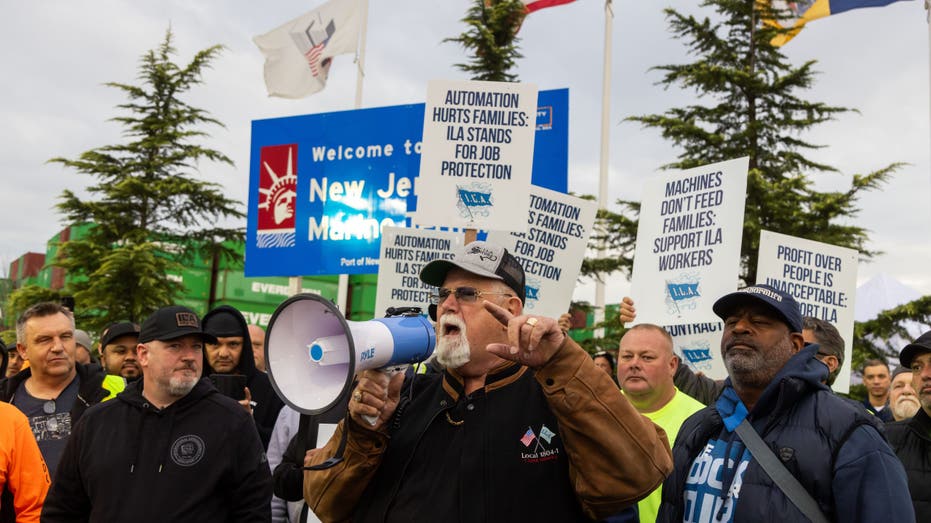'Panic buying begins': TikTok users show port strike fears sparked toilet paper and grocery rush
Americans panic bought food and other goods as U.S. port strikes started earlier this week, according to social media trends.

U.S. port strikes prompted panic buying of food and other goods nationwide this week, according to social media trends.
Unionized dockworkers from the International Longshoremen's Association went on strike to fight for higher pay after their contract with the U.S. Maritime Alliance expired Monday night.
The strike, which has been halted after workers reached a tentative agreement on a 62% wage increase, blocked some containers of food and other goods from entering the country, causing some Americans to take to TikTok to document their shopping experiences.
"Panic buying begins in Virginia amid the port shutdown," said TikTok user @nicolewilliams559 who filmed the long line at her local grocery store. "BJ's Wholesale almost out of toilet paper and water as of 10 a.m."
BALTIMORE RESTAURANT OWNER SAYS PORT STRIKE IS ALREADY IMPACTING BUSINESS: 'IT REALLY HURTS'
"Stop it. Just stop it," another user, @victoria.ajl wrote. "100 people in line for paper towels again."
TikTok user @Txblondie2024 filmed a video showing all the toilet paper and paper towels gone from her local store.
"Don't panic because the ports are closed," she told her followers, "because guess what people have done here? All the toilet paper is gone and the paper towels, again. Do you know why? People are panicking. Guess what? It's made in the United States. You're going to get it. There is shipping in the United States within our country."
Kailee, a mother on TikTok, took to the platform to share her experience of going to multiple stores to find the correct formula for her baby.
"I didn’t think anything of the port strike," she said. "I knew we were going to be affected, but not to this level."
Another mother on TikTok said parents like her are crying because there is not enough formula for their children due to the stockpiling.
"Moms, I understand you are stressing out about this formula shortage, but you need to be considerate of others," TikTok user @dpags1234 pleaded. "Us moms should be supporting other moms. I'm seeing moms buy 20 plus cans of formula when stores are now putting limits on formula purchases, which they should. You buying 20 plus cans is leaving us moms with nothing."
Other users documented their trips to the grocery store to stock up in fears of potential food shortages.
Fox News Digital connected with Mahoney Asset Management President Ken Mahoney who explained the panic buying phenomenon.
"There almost seems to be a phenomenon at grocery stores that shelves stay full, even if those things are not going to be bought, so people do not panic and begin to think there is a shortage," he explained.
"In this case, those shelves may not actually be full because there is a shortage and that can lead people to thinking only for themselves and hoarding a ton of products (that they may not even need) just in case," he continued. "Once there is an idea in people’s head, there is scarcity, or there is going to be, that is when irrational behavior may start like buying all the bananas at the grocery store for example."
While many were so worried, CEO and co-founder of Oxygen Financial Ted Jenkin told Fox News Digital that Americans didn't need to hit the panic button just yet.
"For everyday items, Americans don’t need to hit the panic button day one," he explained, "However, if the strike last(ed) a couple of weeks or stretch(ed) out for a period of 30 days, people could see a major spike in the prices of seafood, alcohol, and bananas. Cell phones, computers, and auto parts (would) also be at risk for supply as well."
Jenkin explained that most holiday goods have already been shipped from overseas as some retailers "stocked up anticipating that this strike was possible."
"Some companies have already shifted their container shipments to West Coast ports, which shouldn’t hurt the holiday supply chain, but consumers could see slightly higher prices due to the increased shipping costs," he said.


